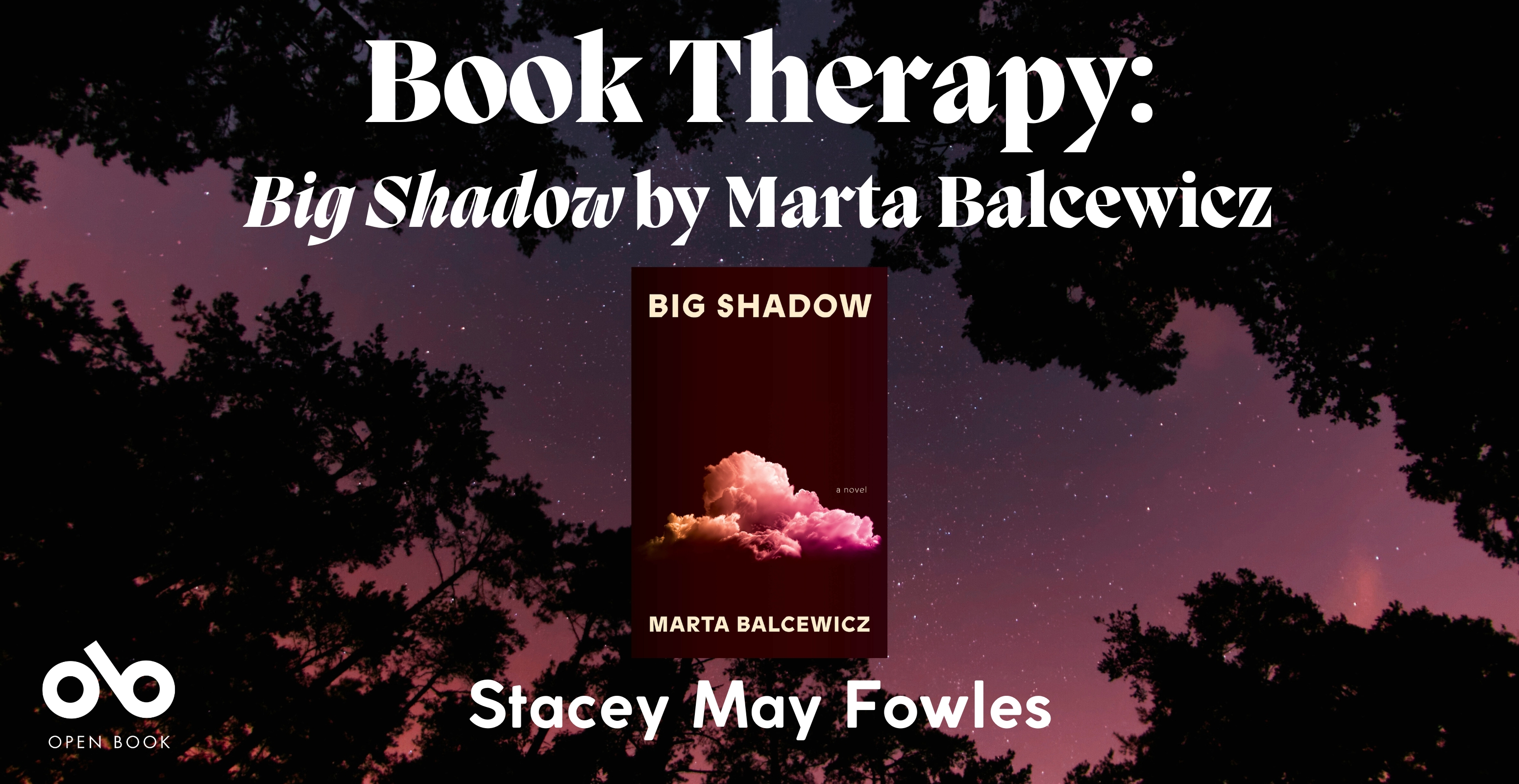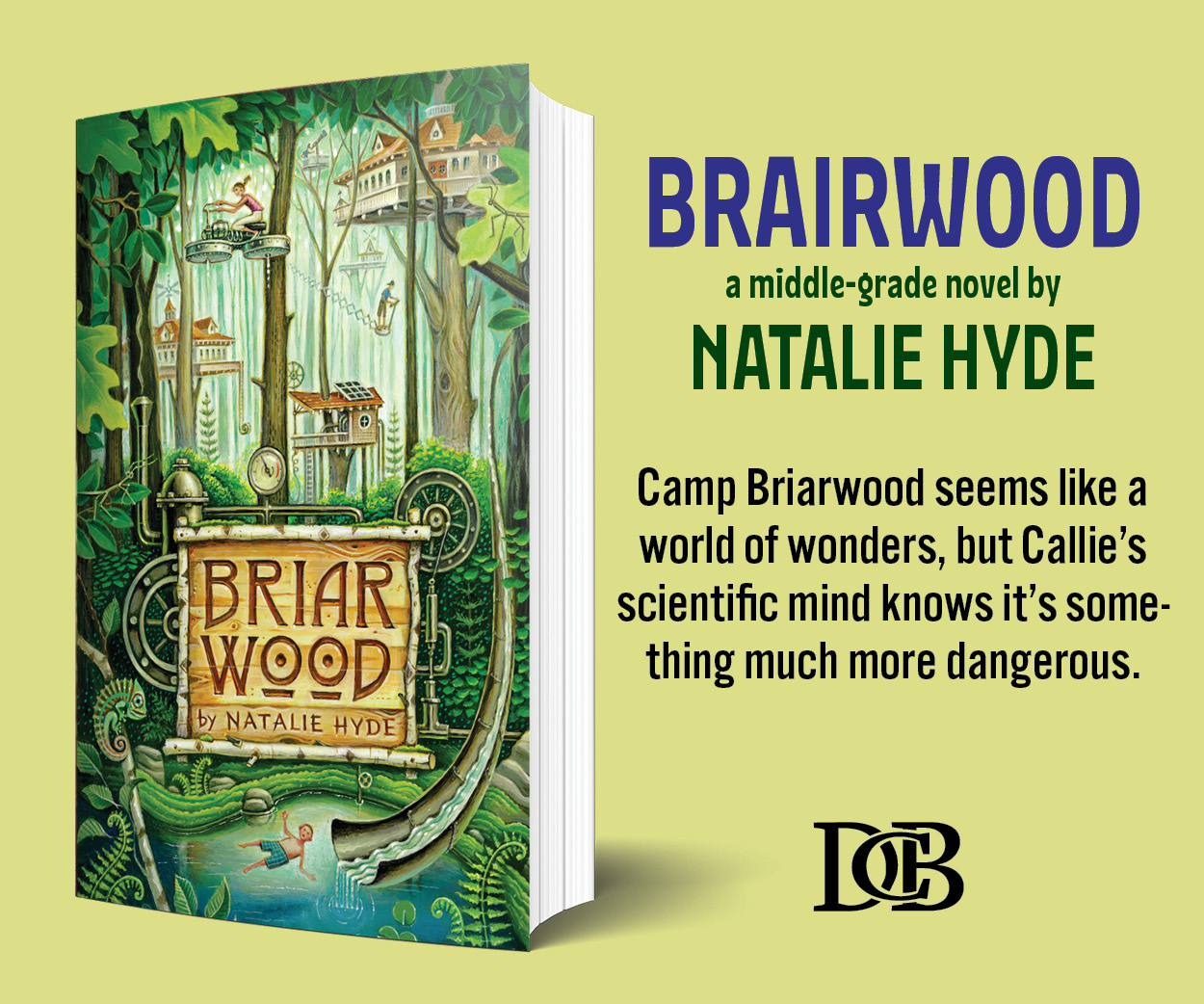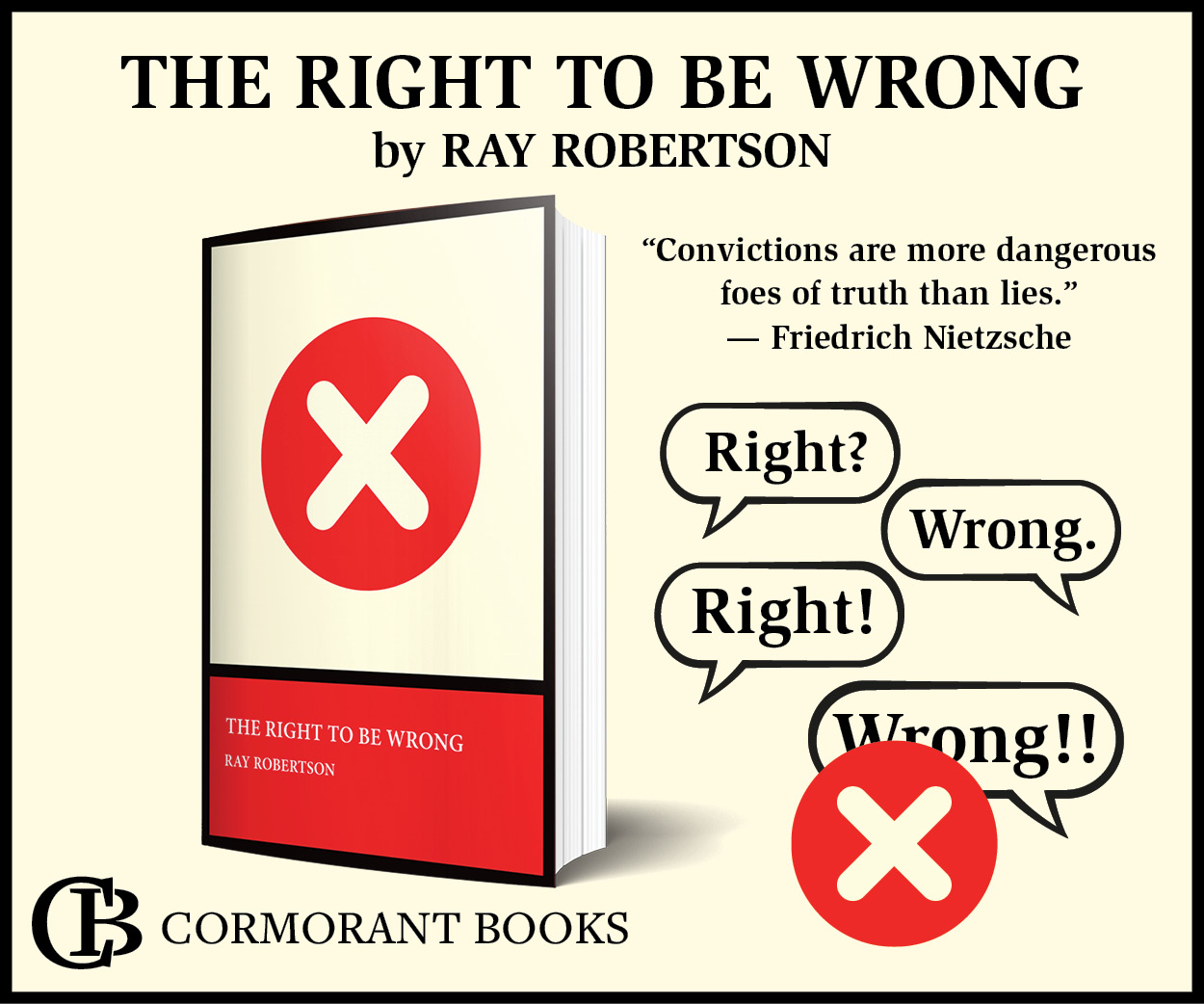Book Therapy: Big Shadow
By Stacey May Fowles
“It suddenly felt pointless—no, more damning than that: it was embarrassing—to have devoted the day to him, travelling to the countrystead just to find his books, then imagining myself as the next someone that he’d choose to walk alongside a river with, the next Rimbaud.”
— Marta Balcewicz, Big Shadow
Recently a friend of mine let me know that she was working hard to stop caring about whether or not people liked her. It was not exactly going well.
“It’s a process,” she told me, laughing. “A life long process.”
I sympathized. Earlier that year I had made my own promise that I would stop concerning myself with the opinions of people I didn’t even know, especially with the opinions of people I didn’t even really know if I liked. I promised myself I would stop fretting about whether strangers thought I was nice enough, or successful enough, or good enough in general. I would stop worrying about the imagined conversations that were being had about me, and instead start focusing on more genuine metrics of satisfaction.
Easier said than done.
What seemed like a very simple mission teetered on the edge of impossibility. Sure there are those blessed few who wake up every day so sure of themselves that external approval is unnecessary (how do you do it?) but for many, and especially the anxious among us, the compulsive need to be enough in the eyes of others has been long ingrained. It’s a need further amplified by the fact that now we’re always on display—posting about our artistic ambitions, our career successes, our Friday night exploits, even what we had for dinner.
What am I if not approved of by people I’ve never even had a single conversation with? While objectively it seems absurd to care so much about the fleeting opinions of others (honestly other people probably don’t think about us all that much anyway,) the need to be accepted is a fundamentally human desire, one that’s very hard to shake. It’s, as my friend aptly put it, a life long process.
Perhaps that’s why Marta Balcewicz’s Big Shadow resonated so strongly with me. A coming of age novel depicting the need for approval taking root, the place where the long battle against being self-conscious begins, the narrative is equal parts discomfort and familiarity for anyone who has struggled with that self-sabotaging need to be liked.
Set in the summer of 1998, Big Shadow’s narrator is seventeen-year-old Judy—recently finished high school and grappling with her burgeoning creative identity. When she connects with significantly older visiting professor Maurice Blunt his fleeting attention feels like a balm, a way out of a town and family dynamic determined to hem her in. Judy soon becomes preoccupied with Maurice’s interest, showing up at his university poetry class, studying his history in the 70’s punk scene, and perhaps willfully ignoring the more troubling aspects of his personality.
“What would you say if I told you that Maurice Blunt materialized from the rain for me, at the peak of a moment of absolute desolation, when I believed the world had nothing to offer me…”
It feels both uncomfortable and inevitable that Judy would revel in being chosen by someone older and seemingly wiser, someone artistic and interesting. Upon Maurice’s enthusiastic invitation she begins covertly travelling to New York to visit his tiny apartment, buoyed by the promise of what both he and the city has to offer her. Yet with each visit, Judy comes to learn the answer to finding out who she is and what she wants does not lie in Maurice’s bombastic adoration, approval, or permission. It certainly doesn’t depend on his anointment of her as an artist—or on whether or not he remembers to call.
Your CanLit News
Subscribe to Open Book’s newsletter to get local book events, literary content, writing tips, and more in your inbox
“I felt two truths simultaneously: that Maurice found me fascinating like no one else and that, at the end of the day, I ranked somewhere near the bottom in the hierarchy of his wants…”
Big Shadow has interesting things to say about the aforementioned need to be liked, and about how a quest for approval can inevitably lead us away from ourselves. Whether you’re a seventeen-year-old high school grad grappling with these struggles for the first time, or a grown up punk poet haplessly grasping for long gone glory days, finding worth outside ourselves is rarely fruitful, often delusional, and occasionally destructive. In the novel the inevitable disappointment that comes when placing one’s ambition and worth in someone else’s hands lands with a dull thud, with Judy quietly slipping away from Maurice and into self-determination.
“I let myself out, and he waved, using the hand that wasn’t holding the receiver. As I walked down the stairs, I could still hear his voice one floor below, but one landing beneath that, Maurice was no more.”
I often think about those people who wake up each day without worrying whether or not they are liked. I think about how amazing it would be to have that kind of freedom. But I also know that freedom is not about being careless, nor is it about never taking the feelings of others into account. Instead it is about not binding up your sense of self in the opinions or affections of others, something that Judy comes to understand when she leaves New York—and Maurice—a final time.
Book Therapy is a monthly column about how books have the capacity to help, heal, and change our lives for the better.
The views expressed by Open Book columnists are those held by the authors and do not necessarily reflect the views of Open Book.
Stacey May Fowles is an award-winning journalist, novelist, and essayist whose bylines include The Globe and Mail, The National Post, BuzzFeed, Elle, Toronto Life, The Walrus, Vice, Hazlitt, Quill and Quire, and others. She is the author of the bestselling non-fiction collection Baseball Life Advice (McClelland and Stewart), and the co-editor of the recent anthology Whatever Gets You Through (Greystone).




